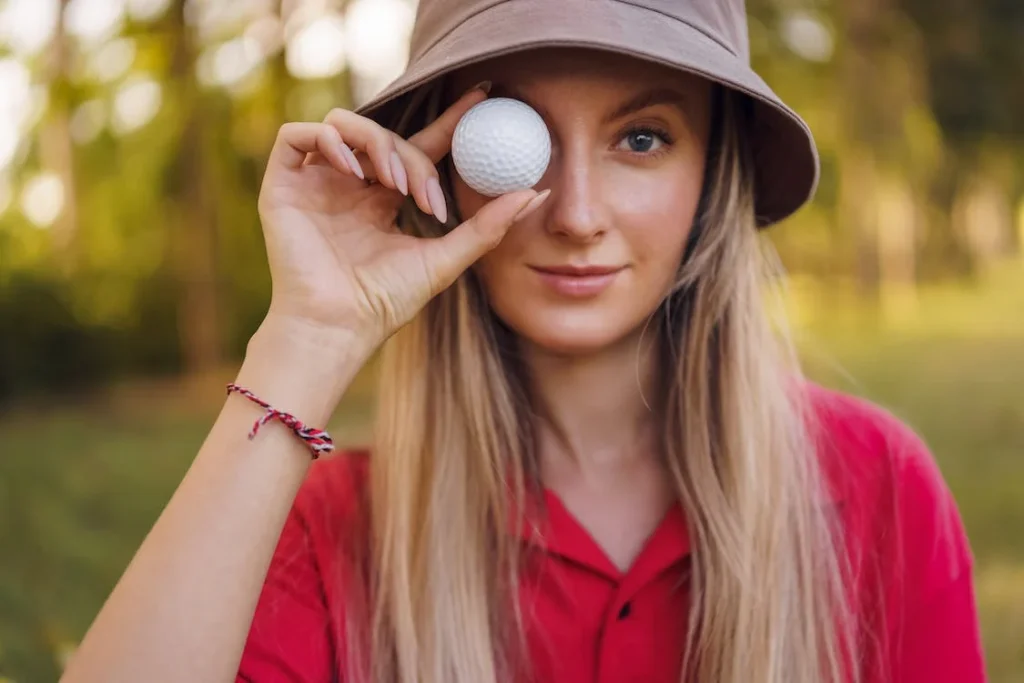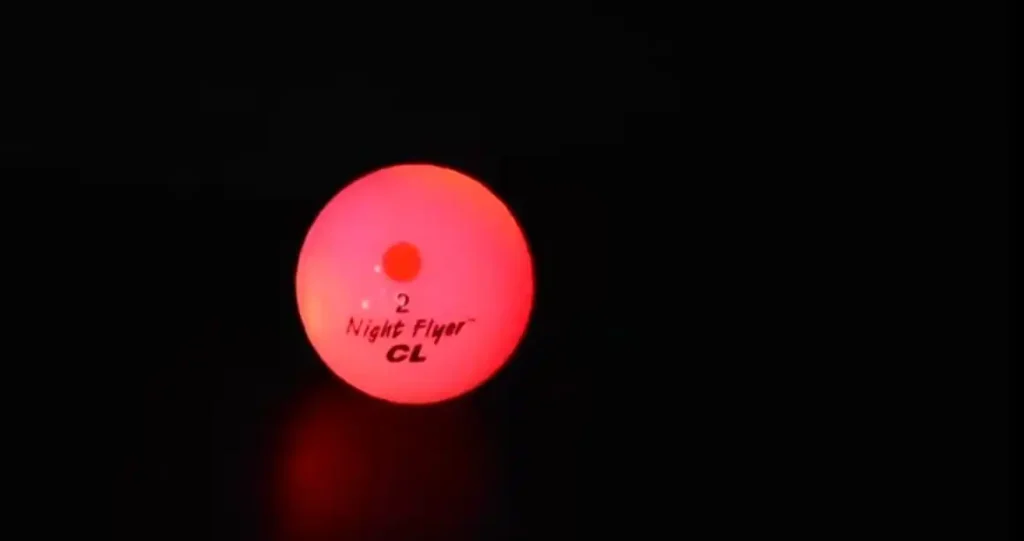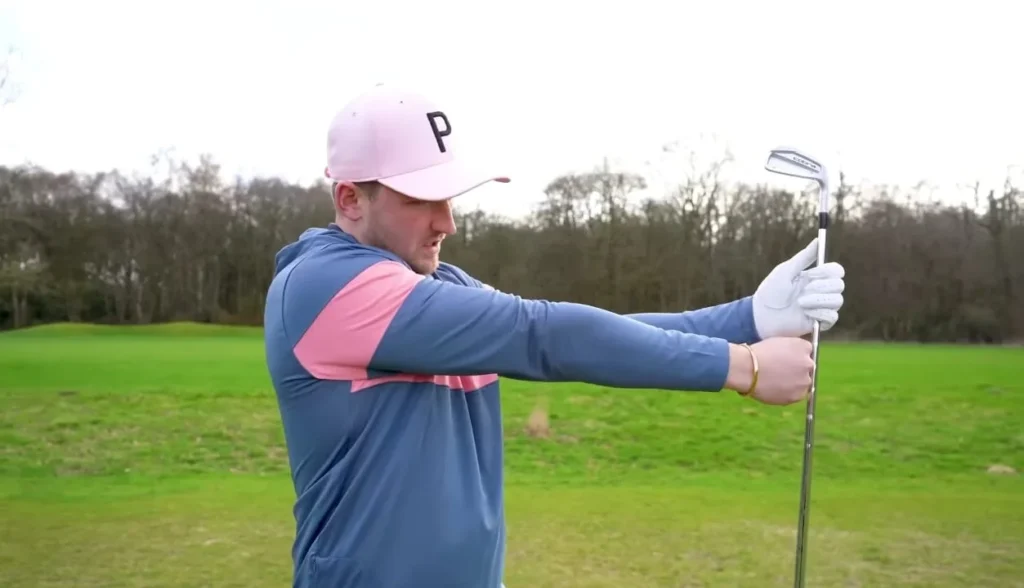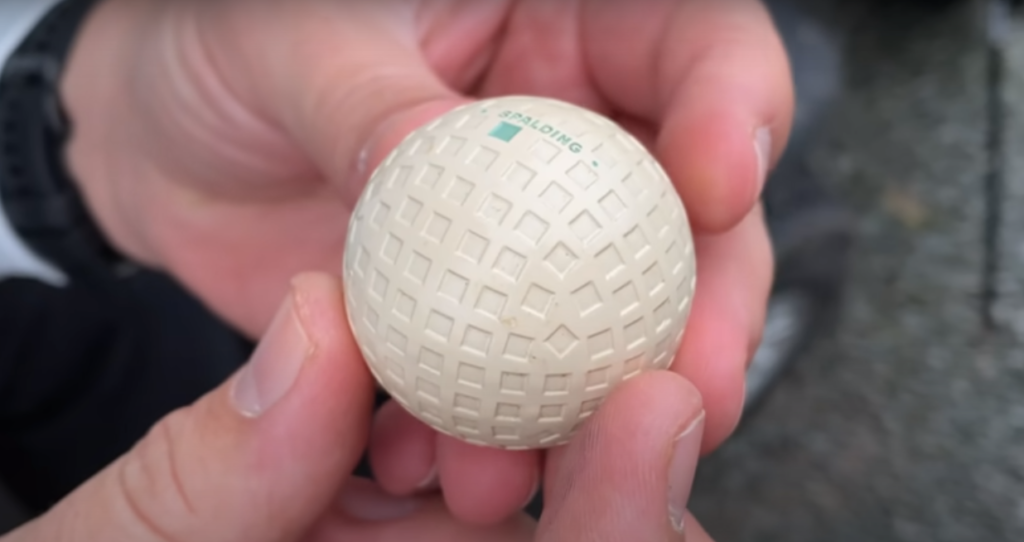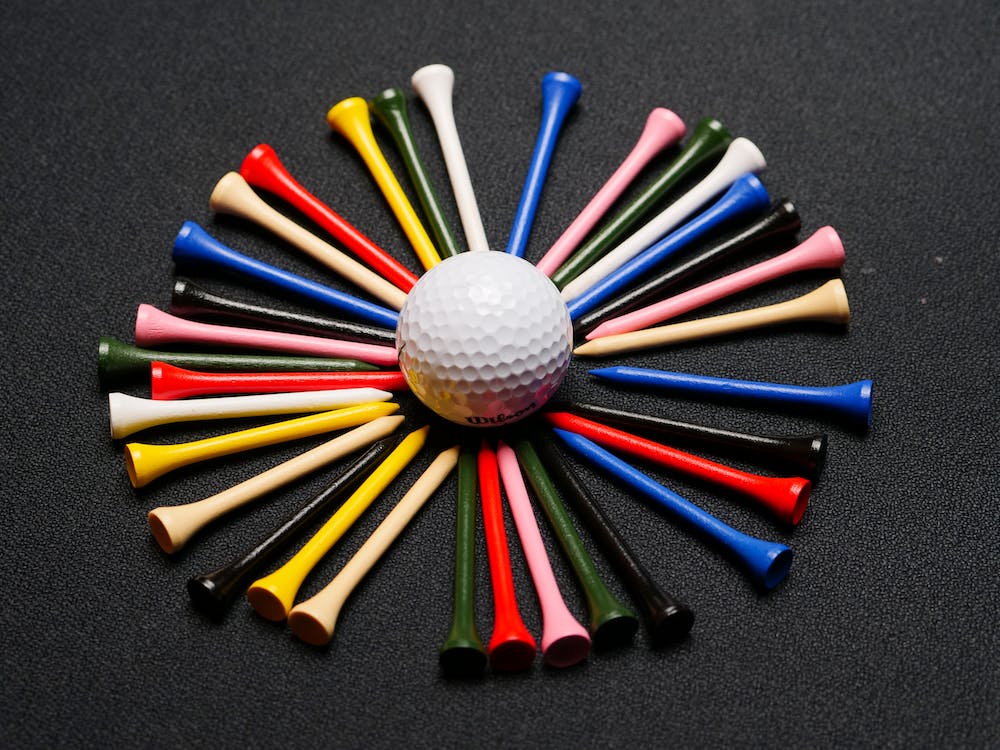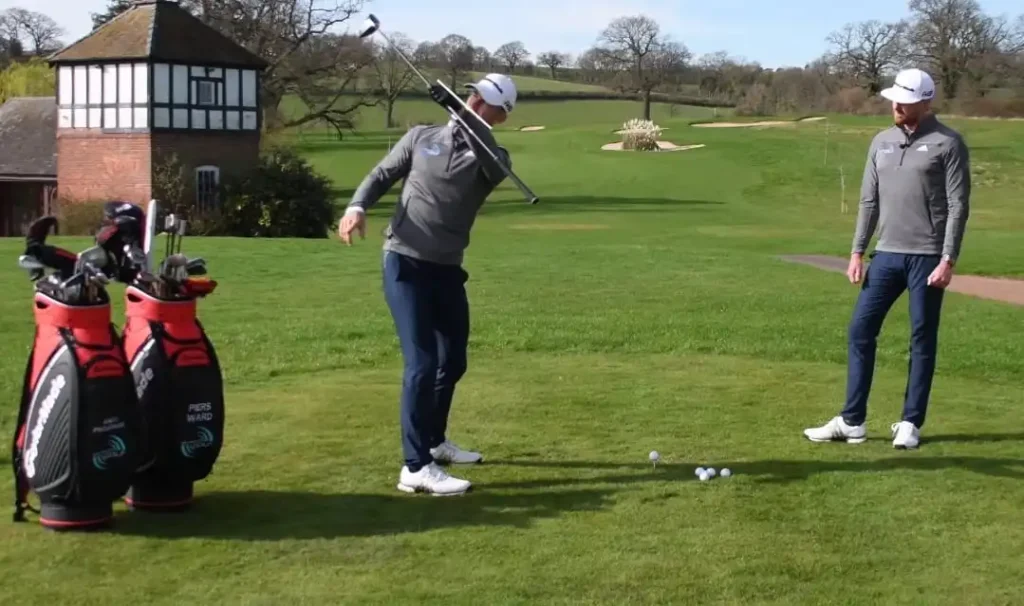Golf is often described as an engaging and intricate game that demands precision, skill, and strategy from its participants. Your equipment choice can have a major effect on your performance on the golf course. So, do golf balls make a difference for beginners? If yes then how much of a difference do golf balls make?
You can ask any golfing expert and they’ll tell you that the choice of a golf ball does impact various aspects of your performance, including distance, accuracy, spin control, and feel. Choosing the perfect golf ball after considering weather conditions can help you enjoy a very intriguing game.
However, before exploring how golf balls influence your game, it’s crucial to gain a basic understanding of their fundamental structure. Golf balls don’t consist solely of simple spheres; their composition consists of many layers.

How much of a difference do golf balls make?
Choosing the right ball makes a lot of difference to your game. It impacts different aspects of your performance, such as distance, accuracy, spin control, and other features. So, do golf balls make a difference? Here’s a brief explanation of how you can feel the difference:
Distance
Some balls are designed to reach a larger distance while others have a firmer core and cover, resulting in longer shots off the tee.
Accuracy
Some golf balls have a low spin rate so they often fly straighter, letting you hit your target with a lot more accuracy than normal balls.
Spin control
High-quality balls offer better control over spin rates. This is important to approach shots and greenside control. Low-spin balls are preferred as they reduce unwanted side spin.
Feel
Whether you prefer a soft feel for better feedback or a firmer feel for increased responsiveness, it can significantly influence your performance. Do golf balls make a difference if they’re firmer? We will discuss this topic in detail later.
Durability
Premium balls are designed to withstand more shots before showing signs of wear. This can save you money in the long run.
Wind performance
Invest in a wind-resistant golf ball to maintain stability in gusty conditions. The wind performance of your chosen golf ball will significantly impact your game.
Flight trajectory
Golf balls can influence the trajectory of your shots. High-launch balls can help golfers get the ball into the air more easily, while low-launch balls might be preferred by those who need to control their ball flight.
Price
Do expensive golf balls make a difference? In general, high-quality, better-performing balls are quite expensive; naturally, investing in costly balls will easily upgrade your game.
Skill level
How skilled you are determines what kind of ball is the best for you. Greenhors look for distance and forgiveness, while seasoned golfers prefer more control and workability.
Course conditions
The firmness of the greens and rough as well as other course conditions affect your choice of the right golf ball. Some balls perform better in specific conditions.
So, do golf balls make a difference in your game? What have we learned from this brief analysis? We have determined that many factors can dictate the kind of balls you need to hone your performance. In the end, however, the best golf ball will depend on your preference. Choose your accessory by considering your playing style and skill level. Seasoned golfers are used to experimenting with many brands, makes, and models before finding out which one suits them the best. Also, custom fitting sessions with a professional will help you identify the ideal golf ball for your golf.

The Core of the Ball
A golf ball is made up of different layers, such as inner and outer cores, the mantle, and the crust, pretty much like the making of our planet Earth. So, do expensive golf balls make a difference or is it better to play with an ordinary one? The answer to this question depends on how your golf ball has been made.
Let’s talk about the core for a moment. Typically made from materials like rubber or synthetic compounds, the core is responsible for the ball’s initial velocity and energy transfer upon impact with the clubface. If we delve deep into the making of this core, it has two cores, inner and outer.
Inner Core
A golf ball’s inner core is crucial in determining its compression, or how much the ball deforms upon impact. High-compression balls are best suited to golfers with faster swing speeds as they deform less upon impact and provide increased initial velocity for greater distance coverage.
Driving Distance: The Power of Golf Balls
To achieve impressive distances off the tee, your choice of golf ball can have an enormous impact. Manufacturers develop balls with various levels of compression to determine how far they travel. so, do golf balls make a difference? The answer will become apparent from these examples:
High Compression Balls
Golf balls are assigned compression ratings, typically ranging from 0 to 100 or more. Low-compression balls have ratings below 70, while high-compression balls exceed this range. Golf balls with high compression ratings are ideal for players who can swing the club quickly. They are better suited for golfers with faster swing speeds, offering control, accuracy, and less deformation for longer shots.
Low Compression Balls
Low-compression balls have softer cores, often made from materials like rubber or a rubber composite. Golfers with slower swing speeds often benefit from using low-compression balls, which compress easily upon impact, providing greater distance even with reduced force. As they’re easier to compress with slower swing speeds, they generate more distance for players with slower swings and provide a softer feel around the greens.
Outer Core
The outer core acts as an intermediary between the inner and mantle cores. It plays a critical role in striking a balance between distance and control, often necessitating either a solid-core design or dual-core design depending on the individual player’s playing styles and preferences.
Some golf balls have a single core while others have a dual-core design. Do golf balls make a difference for beginners when they have a dual-core? Yes, he inner core compresses more easily when it’s dual-core, enhancing feel and control on short shots and around the greens, while the outer core maintains the ball’s speed and distance.

The Mantle: Deliberating Flight
The mantle, situated between the core and cover, exerts significant control over a ball’s spin rate and control. The thickness and material of its mantle play an integral part. For increased control when playing shots, a thicker mantle could be optimal; conversely, if the distance is what matters most to you then thinner mantles may provide maximum distance potential.
Cover of a Golf Ball: What Matters
Golf balls are made from various materials such as urethane or Surlyn; however, what matters more are the dimples adorning their surface. Dimple pattern and depth have an enormous influence on aerodynamics: this affects how it spins when struck and even durability over time.
Knowing the composition of a golf ball is essential to making an informed choice that will enhance your golfing experience. It’s not just about hitting it; knowing your ball makes every shot count.
Do Golf Balls Make a Difference to Your Game?
Once we’ve covered how golf balls are assembled, the ultimate question becomes this: Can golf balls make a significant difference to your game? Without hesitation, I can answer with a resounding “yes”.
Soft Feel Golf Balls
For those who enjoy a gentler touch when striking the ball, soft feel golf balls offer unique feedback and responsiveness that can elevate your game. Soft feel golf balls deliver this satisfying sensation upon impact – giving your shots that satisfying feeling when striking it.
Firm Feel Golf Balls
Conversely, for those who prefer a firmer feel when striking the ball, firm-feel golf balls offer a robust impact which may result in longer distance and better control. Personal preference plays a large part here; choose which balls suit your game! Weather and Course Conditions should also be taken into account when planning golf outings.
Your choice of the golf ball should also take into account external elements like weather and course conditions; these variables could have a tremendous effect on your game.
Cold Weather Golf Balls
These cold-weather golf balls were specifically engineered to perform even in lower temperatures without slowing them down, so your game remains consistent no matter the temperature drop. Their performance remains constant while remaining responsive even as temperatures decline – keeping you on target with your game in any condition!
Hot Weather Golf Balls
In blistering heat conditions, hot weather golf balls remain resilient. Their design ensures they withstand the intense heat without diminishing performance, so you can keep playing your best even when conditions are unbearably hot outside. If you ask me, “Do golf balls make a difference for beginners in hot weather?”, I would say that it does make them better players.

Spin Control: Navigating the Greens
Golfers who appreciate precise control over their shots rely heavily on the spin of the golf ball for shaping shots and making adjustments during their rounds, with which ball they choose affecting how it moves. Do, golf balls make a difference when you’re navigating the greens? Certain, they do! Here’s how different balls provide a different level of spin:
High Spin Golf Balls
These balls are all about giving you more spin, making them ideal for players looking for extra control in their shots and trajectory. High-spin golf balls provide just the extra bit of maneuverability needed to master any course with finesse and finesse – perfect for advanced golfers seeking that extra bit of edge on every shot they hit! If you want an edge-up shot or extra bite to your shots then high spin balls could be your ticket to greater precision on every hole.
Low Spin Golf Balls
In contrast, low-spin golf balls are designed to minimize unwanted sidespin. Straighter shots and greater forgiveness make the right golf ball an invaluable asset when looking to maintain their stroke on course. As such, selecting the appropriate golf ball makes an enormous statement about yourself as an individual and about your game overall.
Finding a golf ball that meets your personal playing style preferences as well as course conditions is key in finding one that elevates your golfing experience and will likely result in higher scores and more enjoyable rounds.
Different Type of Golf Ball
We have established that golf balls do make a difference. That’s why, in this section, we have mentioned some amazing products for you to check out and purchase after careful consideration. Now, your job is to go through these products, compare the pros and cons of these balls, check out the most recent reviews, and make a purchasing decision. We have made sure that no models older than 2022 are present here, so you’d get the best products on sale, manufactured with the latest technology. This list contains some of the best names in the world of golf, such as Titleist, TaylorMade, and Bridgestone. So, go through these products and decide what’s best for your game:
| TaylorMade TP5 High spin golf balls | More Information |
| Bridgestone Golf 2022 Tour B X low spin golf balls | More Information |
| Titleist Velocity High Compression golf Balls | More Information |
| Titleist Tour Soft Low Compression golf Balls | More Information |
| Bridgestone 2023 e6 Cold Weather Golf Balls | More Information |
| Callaway Golf 2022 Chrome Soft Hot Weather Golf Balls | More Information |
Conclusion
Golf requires precise execution to succeed; even the tiniest details can make all the difference in a round-robin tournament. Golf balls may seem straightforward enough at first glance, but their design must meet specific player and playing conditions requirements to remain effective. You may still have many questions. Do certain golf balls make a difference? Do better golf balls make a difference? Well, it all depends on where you’re playing and under which conditions you’re playing.

FAQs – Do golf balls make a difference?
1. Do new golf balls make a difference?
Yes, they can provide increased ball speed and longer distances off the tee. New golf balls also have a more consistent and predictable flight pattern, giving them more spin, feel, and durability. In short, you can improve your performance by a wide margin by using brand-new balls. That’s why you should ditch your old golf balls and replace them with some new ones.
2. Do golf balls designed for professionals make an impactful difference for amateur golfers?
Professional-grade golf balls are designed for top performance, but may not be ideal for amateur players. Such balls require fast swing speeds and precision that may not exist yet among amateur golfers – it’s all about finding an equilibrium between control and distance that works for your game!
3. How Can I Determine the Proper Compression Level for My Swing Speed?
Identifying your ideal compression levels might seem complicated, but don’t stress over it too much! Seek assistance from an experienced golf professional or attend fitting sessions at your local golf shop to ensure that you match up your swing with an appropriate compression level – making your game more effective overall!
4. Are There Any Eco-Friendly Golf Ball Options Available?
Eco-friendly golfers will be pleased to learn that eco-friendly options for their golf balls exist – these balls are made from biodegradable materials that break down over time to reduce environmental impact, providing small steps that could make an enormous difference.
5. Do yellow golf balls make a difference?
Yellow golf balls are often chosen because they are more visible than traditional white golf balls. In certain lighting conditions, such as early morning or late evening, or when playing on courses with fallen leaves or in overcast weather, yellow balls can be easier to spot. So, do golf balls make a difference? Well, they do if they are yellow, apparently!
6. How many golf balls do I hit every day?
If you are practicing your golf skills then hitting 50 golf balls should be enough. Dedicate the first ten shots and the last ten shots to chipping and short-game practice respectively. That’s how golf balls will make a noticeable difference in your performance and you’ll see your skills getting honed with time.
7. Should golf balls sink or float?
Well, golf balls are 13% denser than water so they shouldn’t float. We have already written an entire article explaining if golf balls sink or float in water. So, please read that article to better understand why dimpled spheres behave the way they do.
8. Is golf good for your back?
We’re written an article before on the many health benefits of golf. Golf can strengthen your back if you are keeping a good form and working on improving your posture. But don’t forget that lower back injuries account for up to 34% of all golf-related injuries. So, be very careful when playing golf.

